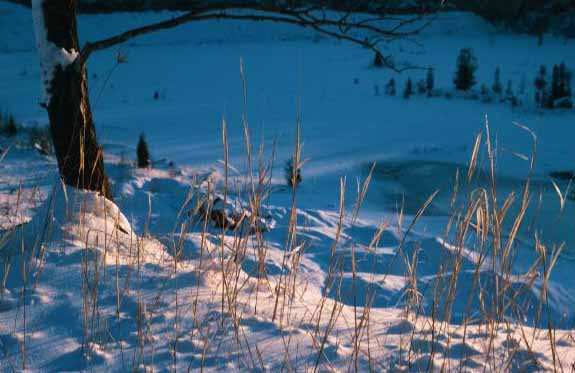
An American Triptych:
Hamadryad

|
An American Triptych: Hamadryad |
It begins.
A map, a line, a
road is built.
One tree falls,
a cascade follows,
slopes left naked in the wind.
Look alike seedlings
in row after row, a handful
of pennies
for fifty
tons lost.
...This necessary a-
symmetry...
A saw's steady journey into
the tree's
distant past,
a year of growth cut
away in a second or two.
A man looks --
that moment of hesitation
as the great
fall begins --
First silent, a holding of the
breath, then
the air splitting on
either
side, two huge waves, the
swell, the crash.
Even the hand holding the saw
is brought down
to
earth.
Such a
dilemma,
this need of
wood, this need
of trees.
But need we be
the one who cuts the
weave?
Single trees
are not the forest
as separate sounds
make no great passion.
Where does the music
go?
Have you not heard the
tree-spirit sing
through the wood of the
oboe, the
violin?
These gifts of
the forest
which are made to last.
But I play my song
on a broken
violin,
the crass and scratchy sound which
suffering
makes.
I am the naked slope, cut clear
of trees,
torn open
with a muddy road.
But how can I resist the saw
when the saw
is
me?
(Hamadryad, from the Greek,
literally means, "the spirit which
lives together with the tree."
The spirit was thought to die
with the death of the tree.
This poem might also be
called The Broken Violin;
and it might be dedicated to the great Austrian
naturalist,
Victor Schauberger, who, already some 80 years ago,
warned of the scarcity of spruce timber
in the montane forests of the Alps
of sufficient stature and quality
for use in the sounding boards of new string instruments.)